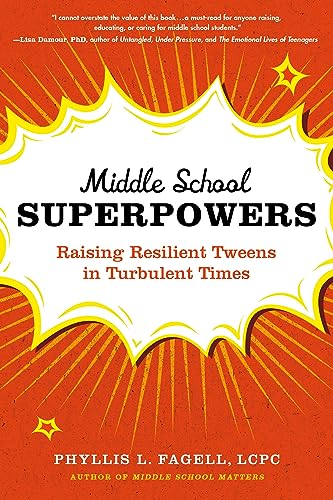
Last fall, I sat and observed the provost at the high school I teach at interacting with our students during study hall. Many of them sat apathetic in their chairs, not wanting to be there at all.
But when my colleague circled the room, I noticed she wasn’t nagging them to finish their homework or asking them to get out their planner.
She simply asked them, “So, what’s your plan?”
Then something weird happened.
On their own, these teens came up with an academic plan. They decided when and where they were going to do their homework. They made plans on how they were going to organize their research paper, and they took the initiative to get with group members about a project.
Presto. They had the power in their own education experience.
This phrase, “what’s your plan?” produces pure magic at all ages, but as both a learning specialist and a mom, I’ve specifically seen it work wonders for my own middle school son.
Related: 10 Ways To Build A Strong Relationship With Your Middle Schooler That Lasts
Middle school comes with new challenges
The transition to middle school is a big one. Kids are given more classes, more homework, more responsibility, and of course, so much more to juggle. It’s a lot.
But rather than giving your child all of the tools they need to succeed (which will only overwhelm them), they need to figure all that out. Because that way, they own their education.
So before middle school began, I tried this question on my son. We were in a mega-store shopping for school supplies. He has six classes, four of them academic, and he needed binders.
So, I asked, “What’s your plan with binders?”
“I know,” he said. “I can have two big binders: one for A Day and one for B Day.”
Genius, I thought. And he came up with that plan all on his own.
How to encourage your middle schooler to be more accountable
Now that you know this game-changing phrase, how can you use “What’s your plan” with your middle school child:
Daily Homework
Let’s say it’s daily homework you want to tackle: simply ask your middle schooler what their plan is—and then trust them (this is the hard part).
My son, for example, knows he can’t have Xbox time until his homework is done, so he typically does it right when he gets home. Sometimes, if he just wants to play after school though, he’ll tell me he’s going to just do his homework in the morning. This one was difficult for me to allow at first, but then I remembered how chill he is in the morning—and I saw him follow through, scribbling his math problems while he ate a bowl of Cheerios.
Sometimes we have to trust our kids to do things in their own ways, which might not be our way.
Related: The Best Homework Apps For Teens To Help Them Succeed In School
Organization
Organization comes naturally for some, and well, very unnaturally for others.
For those of us with neurodivergent brains, this can be extra difficult. Also because of adolescent brain development, boys may have more problems with organization than girls during middle school. For these reasons, it’s even more important to allow your child to attempt to come up with their own organizational system.
My own middle schooler is still working on this. One morning, when he forgot to turn something in, I made the mistake of not asking what his plan was and simply suggested he start using a planner for time management. So, he said in return, “I am not using a stupid planner.”
Of course, he’s not! It wasn’t his idea. He wanted to be in charge of his own plan and organizational tools. The next day, I asked him, “So, what’s your plan with knowing what’s due?”
He simply said, “I’ll check all of my Google Classrooms right when I get home from school.”
So far, his plan has worked—because it’s his.
Many parents and educators are also noticing a lack of executive function skills in today’s adolescents. Executive function and self-regulation skills are the mental processes that enable us to plan, focus attention, remember instructions, and juggle multiple tasks successfully. Organization is a huge part of these important skills. To learn more about how parents can help develop these, read 10 Simple Ways Parents Can Help Their Teens with Executive Function Skills
Time management
Time management can be tricky for middle schoolers who have not yet developed a sense of how long it takes for tasks to be completed or how to budget the hours in a day. This can become more challenging during the middle school years when students participate in more activities.
Just like school, there are a lot of prep and time commitments that often come with extracurricular activities such as sports, music, art, robotics, gaming, and more. Students must learn to be organized in this aspect of their life, too.
Asking your middle schoolers how they will keep this part of their life as a priority is a great way to get them to feel more independent. Long are the days when we fill their water bottles, wash their jerseys, and ensure all their soccer stuff is right in their cubby.
Nope, as budding teens, that should be on them now. My son, on his own, decided it was best to lay out all of his soccer gear the night before because the afterschool hustle is just too chaotic.
As his parent, I breathed a sigh of relief over that one because who needs more stress?
Work Ethic
Asking your middle schooler what their plan is helps them organically own their work ethic.
Just last spring, my son had a big social studies project where he had to research an Asian inventor. I kept asking him what his plan was, and well, he never really came up with one.
On the big Culture Night in the gym at his school where all of the kids showcased their work, it showed.
Before walking into the gym, he said, “Uh, just be prepared. Mine sucks compared to everyone else’s.” I just let it be. He clearly didn’t need a big lecture. He taught himself that lesson—and on the next big project, he soared.
As parents, our initial instinct is to protect our children from failure and disappointment, but this means our kids are not developing grit and resilience either. Teenagers often struggle with taking initiative, and procrastination can easily become second nature to an adolescent.
Keeping them motivated to take personal responsibility for their chores, school work, and activities can be a struggle. Lay down the ground rules that these things are their own to manage and you will not make it your business to ensure these things are done. And don’t get caught up with how they do these things as much as the fact they are getting done.
Related: 5 Ways To Help Teens Develop A Strong Work Ethic
Accountability for mistakes
This magic phrase isn’t perfect, of course. Kids, like us, drop the ball.
They forget to check their Google Classroom regularly or simply leave their homework at home. But it’s important to remember that middle school is a time for immense growth. And growth doesn’t happen through perfection.
Sure, I know it can be frustrating to watch your kid mess up, especially when it comes to grades,
They won’t learn from us bailing them out. So, no, I don’t run left homework to school or even nag my son to finish his big project. If he has to hurry to finish and doesn’t do as thorough of a job as he’d like to, that’s on him—and that’s okay.
Related: Why We Have To Let Our Teens Suffer Through Their Poor Decisions
Looking for more good information on how to navigate middle school as a parent?
We love this book from Phyllis Fagell, Middle School Superpowers, Raising Resilient Tweens in Turbulent Times.

Parenting middle schoolers is hard, but you don’t have to do it alone. Here are some other useful tips:
8 Ways to Help Your Middle Schooler Develop Healthy Friendships
10 Common Problems Middle School Girls Face (And How Parents Can Help)
How To Make Sure You Raise A Teen With Good Money Management Skills






Leave a Comment